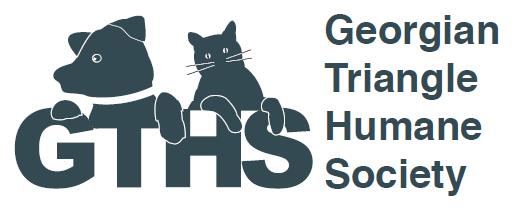A big thank you to Dr. Erin Marley of Bellbrae Animal Hospital for contributing this article to our Resource Section! To learn more about Canine Dermatology join us at the GTHS for a free lecture on Tuesday April 14th @ 7pm. 
Canine Dermatology & Spring Time Allergies
Along with April showers and May flowers, veterinarians have come to expect another harbinger of spring: itchy dogs. Once the weather gets warmer, we start to see our most common skin related complaints which can include everything from generalized itchiness, to ear infections to hot spots.
So why does the warm weather affect some dogs this way? For the majority of itchy dogs, the primary cause is one of three things:
- Allergies
- Allergies
- Allergies!
We can be a little more specific by further defining these –
External parasites, primarily fleas, start to emerge as soon as the ground begins to thaw. In sensitive animals, even a small number of fleas can cause a severe inflammatory reaction. All dogs, but especially itchy dogs, should be on effective flea preventative medication for this reason – even if you do not see fleas on your pet. Remember, fleas move very quickly and can be very difficult to find if present in low numbers. Pets suffering from allergies regardless of the cause have sensitive, reactive skin and as such preventing external parasites makes good sense.
Another parasite to consider is mange. In contrast to fleas that cause an allergic reaction from bites, the mange mite Sarcoptes scabiei causes inflammation and itching from burrowing underneath the skin. To diagnose sarcoptic mange, your veterinarian will perform a skin scraping, which involves scraping the skin and using a microscope to examine the loosened debris. Sarcoptes is spread between animals usually by direct contact.
- ALLERGIES TO FOOD
Dogs can be allergic to any ingredient in food, but the most common allergens in dogs are beef, chicken, wheat, dairy, egg and lamb. In order to diagnose a food allergy, your veterinarian will recommend a hypoallergenic food trial. A hypoallergenic food trial involves feeding your dog a diet made with a protein source and a carbohydrate source that your dog has never been exposed to previously. Hypoallergenic diets can be made of duck, venison, rabbit, fish, and even kangaroo.

With the increase in smaller boutique-type dog foods, there are now a large number of diets available in pet stores with some of these ingredients; in one case I counted 8 different protein sources in one food! This can make choosing a hypoallergenic diet extremely challenging, and I advise owners to stay away from these foods for exactly this reason. Note that none of the pet store diets are suitable for hypoallergenic food trials. A study published in the Journal in Veterinary Dermatology tested pet store diets that purported to be hypoallergenic and found traces of allergens (beef, chicken and/or soy) in every food tested. Even a very small amount of allergen can cause a reaction – think of a child with a peanut allergy – in the case of a trial we need to make sure the food is completely free of allergens to know if the diet is helping or not. In some pets we will use hydrolysed protein diets; in these diets, proteins are split using enzymes until they are too small to stimulate an immune response in the dog. Your veterinarian will recommend a food depending on the individual pet; there is no one diet that will work for every dog and a careful diet history is needed to make an appropriate choice.
Regardless of the food chosen, a hypoallergenic diet trial lasts a minimum of 8 -10 weeks, during which time the dog must eat only the food and nothing else. No treats, no rawhides, no bites of your morning toast, NOTHING but their diet! At the end of the trial, the dog can be challenged with their old diet; if they start scratching, we have confirmed a food allergy.



